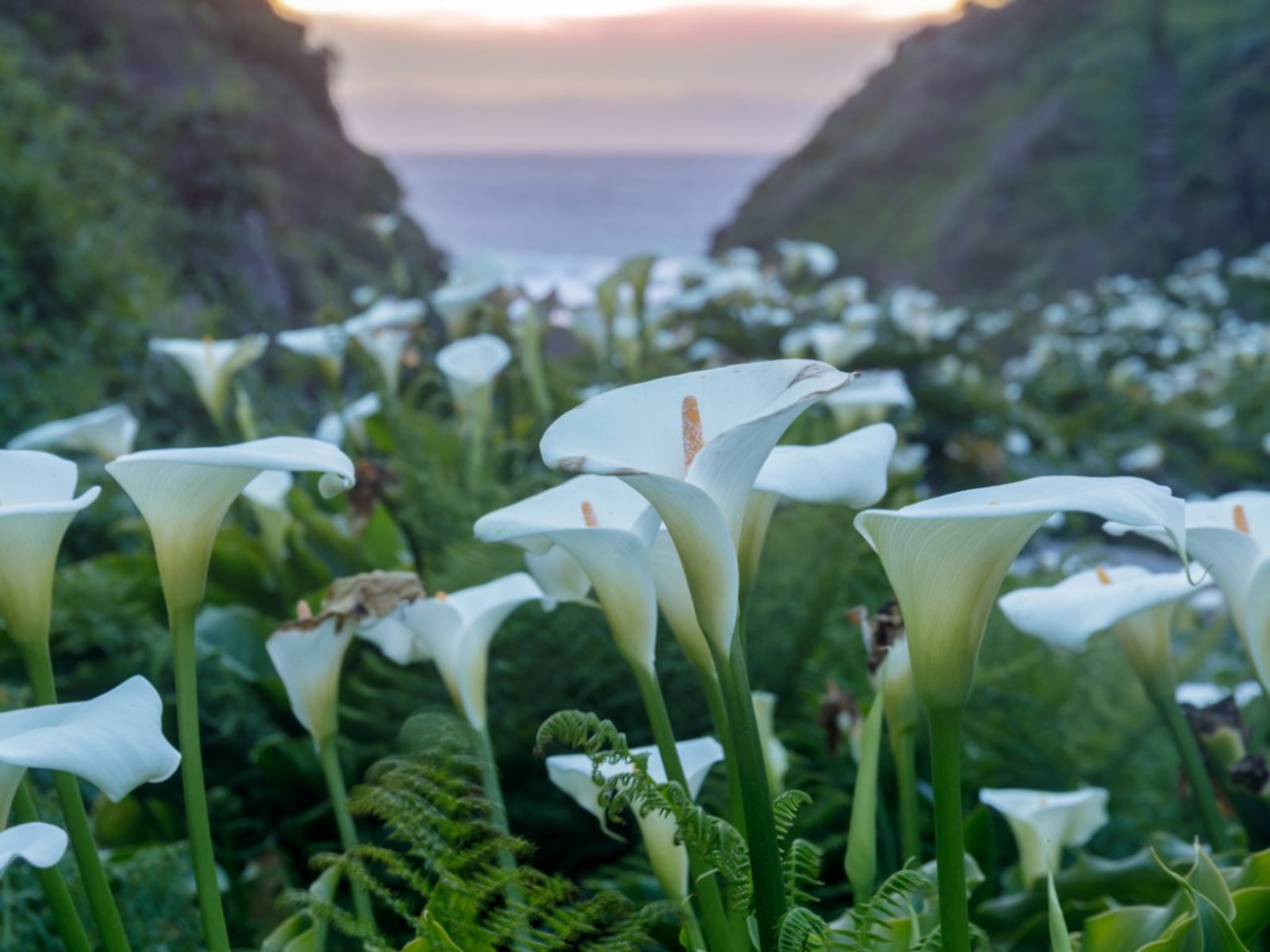How To Make Calla Lily Flower Bloom and Last Longer
How to make a calla lily bloom is a question we often hear. Graceful calla lily flowers are easy to grow, when their special demands are met.

How To Make Calla Lily Flower Bloom and Last Longer
Calla lilies are known for their graceful elegance. They are ideal in formal spaces, garden beds and containers and are always dazzling to even the most discerning of gardeners. They’re easy to grow, which further contributes to their popularity.
Many gardeners choose to plant the flower annually, which ensures a dependable bloom period, usually occurring sometime in early summer. In zones where they are hardy, callas will behave as perennials, but conditions must be ideal for the plant to continue to flower well.
This guide will explore some of the most commonly asked questions regarding the calla’s flowering needs, including questions like why calla lilies are not blooming, when a calla lily blooms, how to make calla lilies last longer, and how to make a calla lily flower again.
Why Won’t My Calla Lilies Bloom?
Even the most experienced gardeners can struggle with how to make a calla lily bloom. Others may wonder whether calla lilies bloom more than once. This topic is best explored when we understand the plant’s growth cycle.
Provided their needs have been met, you can generally expect a flush of calla lily flowers that lasts throughout the summer season. In most gardens, this means their blooms are produced and held over a period of approximately 6-12 weeks. Failure to flower can occur for various reasons, with some of the most common ones listed below.
- 1. Excess Nitrogen Like most flowers, the production of buds in calla lilies can be negatively impacted by excess levels of nitrogen in the soil. Too much nitrogen leads to an overproduction of foliage. This results in large, leafy plants that are unable to bloom well. Testing your soil and amending it before planting will help with this problem.
- 2. Lack of Sun Light is essential to the formation of flowers. Most species of calla lily will grow best under full- to part-sun conditions, receiving approximately 5-8 hours of direct sun each day. Though the plant can tolerate full sun in mild climates, shade throughout the hottest parts of the afternoon is especially beneficial to plants grown in regions that experience hot summer weather.
- 3. Lack of WaterCalla lilies thrive where soil moisture levels remain consistent. This makes them a good choice for growing near ponds, along ditches, or in other low-lying areas. Routine irrigation throughout the season plays a vital role in flower production, more specifically, in regions that are dry or prone to drought. While watering is a key component of calla lily care, gardeners should make certain soils do not become waterlogged or remain saturated for prolonged periods.
- 4. Pests & Diseases Pests and disease may also lead to the loss of flowers. Though most feeding insects will primarily cause only aesthetic damage to blooms, some may have an impact on their formation. Disfigured or deformed buds are often among the primary symptoms of severe infestations. The same can also be said with disease, with more severe problems leading to the complete loss of plants.
Helping Calla Lilies to Keep Blooming
Calla lilies are prized for their long bloom period. Though the plant is not considered to be a cut-and-come-again species, growers can keep their beds looking tidy through consistent deadheading. Removing faded flowers will also help to maintain vigor and allow plants to divert their energy into continued growth, rather than the production of seeds.
Helping Container-Based Calla Lilies to Bloom
If you’re growing callas in containers, you can help rhizomes to rebloom in a variety of ways. This includes selecting pots that are most accommodating to the plant, as well as consistently monitoring soil moisture and nutrient levels throughout the season. Certain species may also require a period of dormancy to bloom successfully.
Sign up for the Gardening Know How newsletter today and receive a free copy of our e-book "How to Grow Delicious Tomatoes".
Frequently Asked Questions
Does a Calla Lily Bloom All Summer?
Most calla lilies begin to bloom in early summer. Flowers are well-held, atop sturdy stems. This contributes to their high ornamental value, often lasting months before flowers finally begin to fade and take on a diminished appearance.
Does a Calla Lily Bloom Every Year?
Where they are hardy, calla lilies should rebloom when they’re provided with adequate light, water, and nutrients. Although failure to rebloom is most commonly the result of one or more of the cultural components listed here, insect pressure or disease may also play a role.

Heather Rhoades founded Gardening Know How in 2007. She holds degrees from Cleveland State University and Northern Kentucky University. She is an avid gardener with a passion for community, and is a recipient of the Master Gardeners of Ohio Lifetime Achievement Award.

